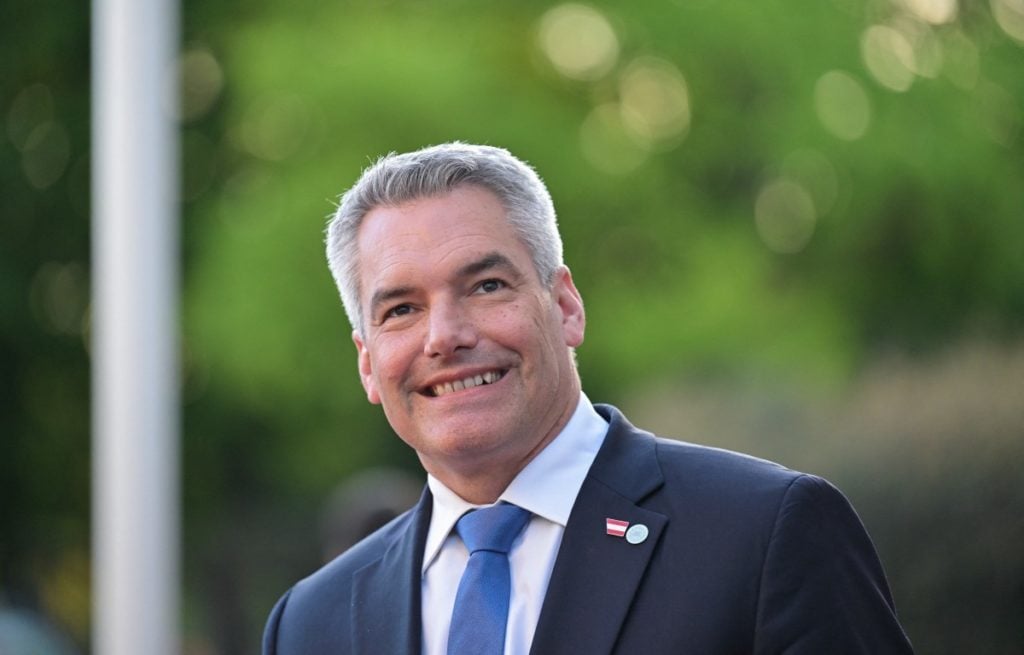With voters tired of a European Union handing down decisions from on high, parties like France's National Front (FN), Britain's UKIP and Austria's Freedom Party (FPÖ) are going strong in the polls ahead of the May 22nd-25th ballot.
But it might not be all plain sailing in the months to come.
Hoping to capitalize on recent support, the FPÖ – formerly led by Joerg Haider who had praised some of Hitler's policies – proudly announced in November that six European far-right parties would join forces to put Europe "back on the right track."
"The agreement is well on its way," leading FPÖ candidate Harald Vilimsky said last week.
Matteo Salvini, head of Italy's Northern League, also spoke of "advanced" talks recently to set up a far-right group, adding it would be "as big as possible" with like-minded parties from Denmark, Austria, the Netherlands and France.
Nationalist parties have regularly talked of setting up an alliance, united by their opposition to the euro and to the EU "monster", which they see as anti-democratic and encroaching on national sovereignty.
Common grievances against Islam, immigration and ethnic minorities like the Roma have also made parties like the FPÖ, FN, Sweden Democrats, Dutch PVV and Belgium's Vlaams Belang natural partners.
In 2007, a short-lived far-right faction – "Identity, Tradition, Sovereignty" – was even formed in the European parliament with FN, FPÖ, Vlaams Belang and Bulgarian Attaka deputies.
But deep divisions remain between the various national parties despite their common "far-right" label, and an alliance will require hard work to stay alive, experts say.
Friends or foes?
The FPÖ and the FN – the latter formerly led by Jean-Marie Le Pen before his daughter Marine took over – are still struggling with lingering accusations of anti-Semitism.
This has turned off potential partners like the Danish People's Party, Finland's far-right Finns or UKIP, whose leader Nigel Farage has rejected any alliance with the National Front.
Islamophobic comments by PVV leader Geert Wilders have meanwhile met with condemnation in France, while Hungary's anti-Semitic Jobbik and the British National Party (BNP) have been kept at arm's length for fear of being too extreme.
"The question is how homogeneous is this faction. Can these parties work together in the long term?" Reinhold Gaertner, a political expert at Innsbruck University, told AFP.
Far-right deputies in the parliament – numbering about 50 in the current 766-seat parliament, according to various analysts – are currently split between different factions or unaligned and isolated.
A far-right group would give them a better status, more funds and greater influence in policy-making, including seats on committees and more speaking time in parliament.
Quarrelling and scandals
Twenty-five deputies from a quarter of the EU's 28 member states are needed to set up a new parliamentary group and observers agree there are enough candidates to make this possible.
FN candidate Aymeric Chauprade has spoken of bringing together a dozen parties and some 50 deputies.
Wilders also said last week he was optimistic that eurosceptic parties including the National Front and Northern League would join forces after the European elections.
"I am very confident, I invested a lot in the last year by travelling all over Europe. We will be able to work together."
But in the long-term, issues over borders and ethnic minorities are bound to create clashes between nationalist parties, as they have in the past, Werner Bauer, a far right expert at the Austrian political institute ÖGPP, told AFP.
He also warned the group will be beset by "constant quarrelling and scandals".
"Many of these movements are centred on leadership figures… and these narcissistic personalities have to first sit down together and come to an agreement."
"I think it will happen, a faction will be set up. But it probably won't exist for very long," Bauer predicted.
In 2007, "Identity, Tradition, Sovereignty" dissolved after just ten months after an Italian-Romanian spat prompted the departure of several Romanian MEPs.




 Please whitelist us to continue reading.
Please whitelist us to continue reading.
Member comments